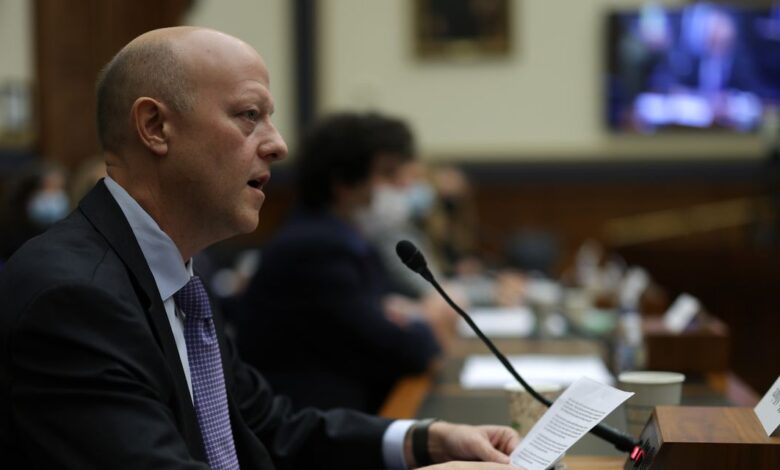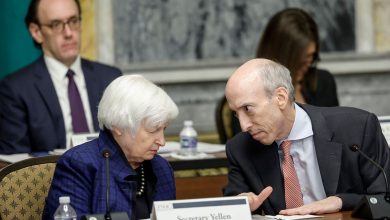Stablecoin issuer Circle to transfer $3.3 billion in cash held at SVB to BNY Mellon

[ad_1]
Circle, creator of the world’s second-largest stablecoin USDC, will transfer its $3.3 billion in cash held at collapsed Silicon Valley Bank to BNY Mellon on Monday, once the funds become available, Chief Executive Jeremy Allaire tweeted Sunday.
U.S. financial regulators on Sunday said Silicon Valley Bank depositors would have access to “all their money” starting Monday, after the bank was shut down Friday in the second-largest bank failure in U.S. history.
The $3.3 billion in cash held at Silicon Valley Bank makes up about 8% of USDC’s more-than-$40 billion reserves, Circle said Saturday.
USDC
USDCUSD,
which is supposed to maintain a one-to-one peg against the U.S. dollar, rebounded to 99 cents on Sunday after the cryptocurrency fell to as low as 86 cents on Saturday, according to CoinDesk data. Investors cashed out more than $2.6 billion of USDC in the 24 hours up to 3 a.m. Saturday.
Crypto market participants had earlier worried that the de-pegging of USDC would shake up the crypto market, which is still recovering from the collapse of FTX and some other crypto companies over the past year.
Bitcoin
BTCUSD,
rallied 10% Sunday to around $22,560, though it is still down more than 65% from its all-time high, according to CoinDesk data.
Meanwhile, Circle will not be able to process minting and redemption of USDC through SigNet, Signature Bank’s
SBNY,
real-time payments platform, according to Allaire, after state authorities on Sunday closed the New York-based bank.
Circle will be relying on settlements through BNY Mellon
BK,
according to Allaire.
“We will be bringing on a new transaction banking partner with automated minting and redemption potentially as soon as tomorrow,” said Allaire on Sunday.
Signature Bank has been an important banking partner for several crypto companies including Circle, especially after crypto-friendly Silvergate Bank said on Wednesday it would wind down operations.
Signature Bank provides deposit services for its clients’ digital assets, but does not invest in, does not trade, does not hold on its own balance sheet nor provide custody of digital assets, and does not lend against or make loans collateralized by such assets, the company said.
[ad_2]
Source link



